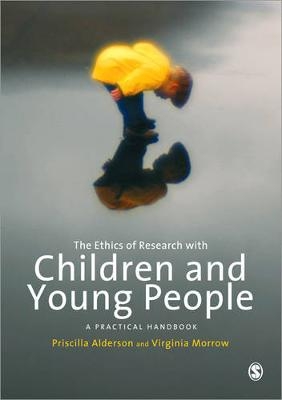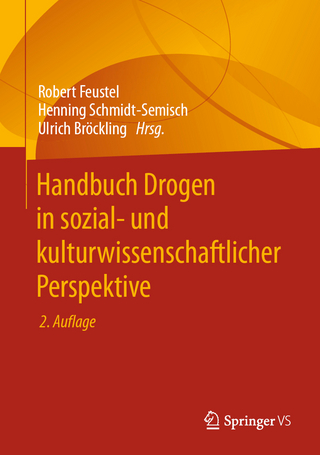
The Ethics of Research with Children and Young People
SAGE Publications Ltd (Verlag)
978-0-85702-137-3 (ISBN)
- Titel erscheint in neuer Auflage
- Artikel merken
Ethical questions are at the centre of research with children and young people. This clear and practical text informs students and researchers about the relevant laws and guidelines and current debates in research ethics. Priscilla Alderson and Virginia Morrow cover ethics at every stage of research, and with all kinds of young research participants, particularly those who are vulnerable or neglected. They break down the process of research into ten stages, each with its own set of related questions and problems, and they show how these need to be addressed.
This practical book is essential reading for anyone who conducts or reviews research with children or young people.
Priscilla Alderson is Emerita Professor of Childhood Studies at the Institute of Education University of London.
Virginia Morrow is Senior Research Officer in the Department of International Development, University of Oxford.
Priscilla Alderson is Emerita Professor of Childhood Studies at University College London Social Research Institute. She has been involved with medical research ethics committees for nearly 40 years, and more recently with committees that review social research. She has advised on the writing of research ethics guidelines for a range of medical, nursing, social and psychological authorities. She has researched many aspects of children’s lives and rights, from premature babies to young people aged up to 18 (see ResearchGate). Recent books include Childhoods, Real or Imagined: An Introduction to Critical Realism and Childhood Studies (Routledge 2013) and The Politics of Childhoods, Real or Imagined (Routledge 2016). Virginia Morrow is Visiting Professor, UCL Social Research Institute, and Research Associate, Young Lives, Department of International Development, University of Oxford. Her main research interests are sociology and history of childhood, child labour and children’s work, children’s rights, methods and ethics of social research with children; children’s understandings of family and other social environments. She has been a member of numerous advisory groups and research ethics committees. She is the author of numerous papers and reports and she was a co-editor of Childhood: A Journal of Global Child Research, 2006-2016, also published by Sage.
Introduction
Defining Some Terms
Research Ethics
The Purpose of This Book: Starting from Uncertainty and the Question Format
Researchers as Insiders or Outsiders
The Contents of This Book
PART ONE: THE PLANNING STAGES
Planning the Research: Purpose and Methods
Two Basic Questions
Questions about Purpose and Methods
Is the Research Worth Doing?
Do Theories Matter?
Do Viewpoints Matter?
Do Methods Matter?
Three Phases in Growing Awareness of Research Ethics
Three Ethics Frameworks for Assessing Research
Uncertainty - The Basis of Ethical Research
Summary of Questions
Assessing Harms and Benefits
Harms
Benefits
Risk, Cost, Harm and Benefit Assessments
Confusion in Risk-Benefit Assessments
Risk of Distress or Humiliation
Summary of Questions
Respect for Rights: Privacy and Confidentiality
Legal Rights to Confidentiality
Opt-in or Opt-out Access
Practical Respect
Privacy Rights
Data Protection Act 1998
Confidentiality or Acknowledgement?
Intimacy between Strangers: Research Interviews
Ethics and the Internet
Respecting Local Values
Privacy and Encouraging Freely Given Responses in Face-to-Face Contact
Does Traditional Ethics Cover Modern Research Experiences and Relationships?
Summary of Questions
Designing Research: Selection and Participation
Framing the Topics and Extent of the Research
Combining Respect, Inclusion and Protection
Does Traditional Ethics Cover Social Exclusion?
Images and Symbols
Beyond Inclusion to Participation: Children and Young People as Researchers
UN-Related Work With Young People
Respecting Young Researchers′ Own Qualities
Summary Of Questions
Money Matters: Contracts, Funding Research and Paying Participants
Planning, Budgeting and Research Agendas
Ethics and Funding Sources
Carbon Costs
Ethics and Contracts
Freedom to Publish
Paying Young Researchers and Participants
Payments in Context
Summary of Questions
Reviewing Aims and Methods: Ethics Guidance and Committees
Review and Revision of Research Aims and Methods
Does Social Research Need Research Ethics Committees?
Recent Experiences with Research Ethics Committees
International Standards
A National Social Research Ethics Forum?
Summary of Questions
PART TWO: THE DATA COLLECTING STAGE
Information
Spoken and Written Information
Research Information Leaflets
Leaflet Layout
Examples of Research Information Leaflets
Leaflets in Other Languages
Information in Semi-Literate Societies
Relevant Research?
Two-Way Information Exchanged Throughout the Research Study
Summary of Questions
Consent
Consent and Rights
The Meaning of Consent
Consent to Open-Ended Research
Assent
Consent and the Law
Consent by and for Children and Young People
Double Standards
Complications in Parental Consent
Defining and Assessing Competence to Consent
Levels of Involvement in Decision Making
Respecting Consent and Refusal
Consent to Longitudinal Research
Consent and Secondary Data Analysis
International Standards of Consent
Research and International Contexts
Why Respect Children′s Consent?
General Questions about Children′s Consent
Summary of Questions
PART THREE: THE WRITING, REPORTING AND FOLLOW-UP STAGES
Disseminating and Implementing the Findings
Involving Children in Data Analysis
Dissemination: Getting to the Heart of Debate and Change
Dissemination and Implementation: Children, Young People and Adults Working Together for Change
Problems with Dissemination
Creative Ways Round the Problems
Dissemination and the News Media
Critical Readers and Viewers
Underlying Attitudes to Children and The 3 Ps
Summary of Questions
The Impact on Children
What Collective Impact Can Research Have on Children and Young People?
Reviewing the Impact of Research on Children
Positive Images
Summary of Questions
Conclusion
Ways Forward for Individuals and Teams
Questions that Cannot be Solved by Individuals Alone
The Need for Social Research Ethics Authorities
Summary of National Policy
Is the Research Worth Doing?
And Finally
References And Index
| Erscheint lt. Verlag | 18.1.2011 |
|---|---|
| Verlagsort | London |
| Sprache | englisch |
| Maße | 170 x 242 mm |
| Gewicht | 310 g |
| Themenwelt | Schulbuch / Wörterbuch |
| Sozialwissenschaften ► Soziologie | |
| ISBN-10 | 0-85702-137-0 / 0857021370 |
| ISBN-13 | 978-0-85702-137-3 / 9780857021373 |
| Zustand | Neuware |
| Haben Sie eine Frage zum Produkt? |
aus dem Bereich



